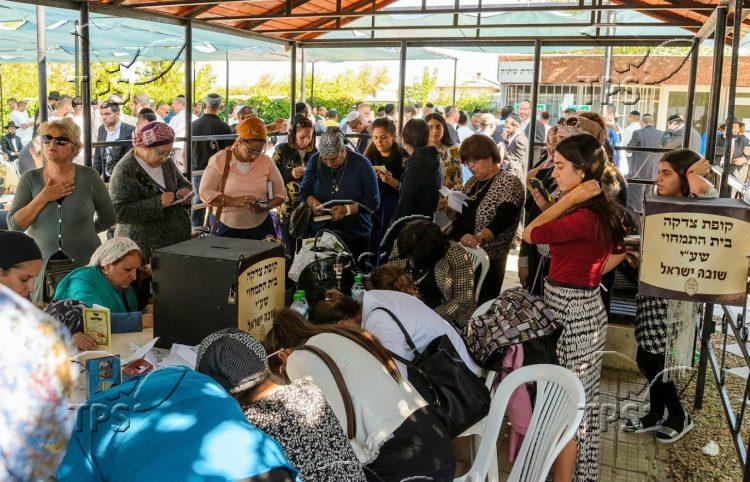Bulgaria: Rabbi Papo Memorial in Silistra Draws Pilgrims from Across the World
Jerusalem, 25 September, 2022 (TPS-IL) -- Silitsra Bulgaria, On the Danube, 23.09.2022 (BTA)
Jewish pilgrims from around the world are visiting Silistra in the days before the Jewish New Year (Rosh Hashanah) to pray at the grave of Eliezer Papo (1785–1828), one of the most prominent rabbis.
This year Rosh Hashanah begins on September 25 and ends on September 27.
The Eliezer Papo memorial complex has for years been a center of attraction for pilgrims from Israel, the United States, Europe, and South America. They pray, sing and dance, holding hands. Many tell about how after praying at the rabbi’s grave their deepest wishes came true. That is why they continue to come and bring their families as well.
“We come because of this holy man who is buried here. We believe that if we pray at Papo’s grave before Rosh Hashanah, he will protect us and our relatives and friends,” Chaim Amos, who visits the memorial every year, told BTA.
“When I first came here four years ago, I prayed for my business because I was distressed. Today, things are going well and I am more than successful,” said another of the pilgrims, attributing his good fortune to the sanctity of the rabbi’s grave.
It is customary for believers who visit the holy site to leave supplication notes similar to those on the Wailing Wall.
Usually, when larger groups visit the memorial, they are closely guarded by law enforcement.
Eliezer Papo was one of the 12 most revered rabbis in the 19th century. He was born in Sarajevo in present-day Bosnia and Herzegovina. He graduated in Theology in Bucharest from what was one of the most renowned religious schools in the late 18th century. When offered the choice of where to serve as rabbi, he said he wanted a small and unenlightened congregation, vowing to make it a center of spirituality. His choice was Silistra, a small town in what was then the Ottoman Empire. He set up a school there, wrote books, among them his work Pele Yoetz – religious postulates and spiritual and secular texts, and now studied in Jewish communities throughout the world.
Papo also had a degree in medicine. So he began to treat people without regard to religious affiliation. When a cholera epidemic broke out among Russian soldiers during the Russo-Turkish War (1819-1827), the rabbi became involved in treating the sick by organizing quarantine belts and infirmaries. He succeeded in curing many, but became a victim of the disease himself.
He was buried on the banks of the Danube, and the grateful people of Silistra erected a monument to him. Later the monument was pulled down by the Turks, and the place where he was buried was completely obliterated.


